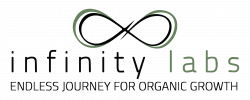Ende letzten Jahres (2021) kam es zur virtuellen Begegnung von InfinityLabs. Daran wird mit diesem Post erinnert, sowie auch diesen Frühling 2022 mit der gemeinsamen Liebe zur Natur und freien Software erneuert.
Folgend, die Selbstbeschreibung auf Englisch, von Cosmo’s Crew:
Who are we? We are a team of researchers and developers of free tools to support the construction of a local collective intelligence capable of cultivating technological autonomy and data sovereignty. We are also teachers, we work within the theoretical framework of Environmental Education, and, from this point of view, we try to cultivate ethical clouds that we consider new digital territories in which we seek to apply actions based on a kind of Digital Environmental Education for digital environments.
From this perspective we also hack the idea of digital citizenship into what we are calling digital forestry (a kind of digital citizenship for both humans and non-humans), and we invite our partners and users of the digital territories we co-create to make a deep reflection about their technological choices so that, in this way, they can awaken their technopolitical consciousness in a broader movement of technical disalienation, which has as its backdrop the understanding about what several theorists call surveillance capitalism and data colonialism.
For us, data are at the centre of world economic life and, as Amazonians, we know very well the importance of knowledge related to our way of life, especially our relationship with rivers and forests. That is why we are seeking inspiration in the knowledge of our ancestors, indigenous people, quilombolas and river dwellers, as this is the closest thing we have to humans capable of communicating with non-humans (land, river, sky, forest, fish, animals, etc.).
In this communicative process, much knowledge has been accumulated and has been fundamental for positive changes to the environment for both humans and non-humans. Among these commons is what is known to this day as „Terra Preta de Indio“, which are dense layers of fertile soil in the middle of the forest that are the result of interaction between indigenous people, animals and plants. Our point of view is that the work we are beginning to do in partnership with various people, collectives and organisations to create infrastructures for collecting, storing and processing data and communication is a kind of „Digital Indian Black Earth“ and we consider this a common good, which, based on the social participation of the various actors involved, can help us to have a communication channel between people and territory, between man and nature, and from this understanding to become aware of the real situation of the environment, people and other non-human beings that inhabit it. Thus, who knows how to intervene to improve the existence of humans and non-humans.
What are we doing? At the moment we are carrying out trainings about digital culture and free software for the Escola Bosque’s teachers, and carrying out workshops with the students‘ parents to install the Moodle application and download the remote teaching support activities proposed by their respective teachers.
Also at Escola Bosque we are collaborating with a digital literacy project oriented to the collection and organization of data, using the free app Mapeo articulated with the water theme, and training teachers of Escola Bosque to use Nextcloud in our ethical cloud.
We are also supporting the participative budget actions of the City Hall of Belém, through the Decidim instance that we helped to install and configure in the servers of CINBESA (Companhia de Processamento de Dados da Prefeitura de Belém), we gained something very valuable in this process which was the knowledge of how to handle Decidim. We are very grateful to you first and then to Antonio Callejas and Javier Toret who introduced us to Pau Adelantado, who led us in the studies of the tool.
More and more we seek closer cooperation and partnerships with the communities of the respective software that we are using, in the specific case of Decidim, our work has already gained space in forums of international collaboration: https://github.com/luizsanches/decidim-belem is listed at https://decidim.org
Cosmo

